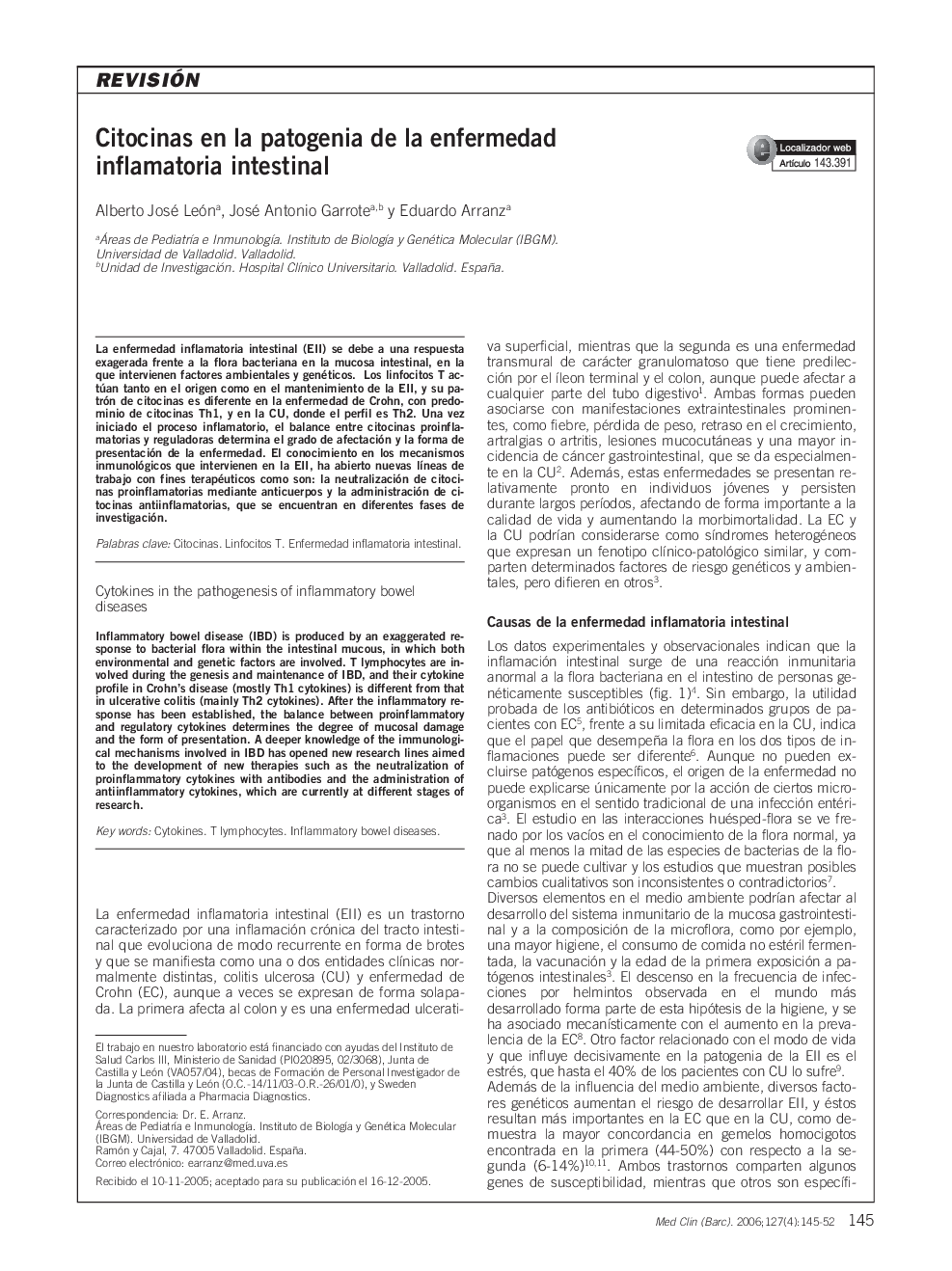| Article ID | Journal | Published Year | Pages | File Type |
|---|---|---|---|---|
| 3803076 | Medicina Clínica | 2006 | 8 Pages |
La enfermedad inflamatoria intestinal (EII) se debe a una respuesta exagerada frente a la flora bacteriana en la mucosa intestinal, en la que intervienen factores ambientales y genéticos. Los linfocitos T actúan tanto en el origen como en el mantenimiento de la EII, y su patron de citocinas es diferente en la enfermedad de Crohn, con predominio de citocinas Th1, y en la CU, donde el perfil es Th2. Una vez iniciado el proceso inflamatorio, el balance entre citocinas proinflamatorias y reguladoras determina el grado de afectación y la forma de presentación de la enfermedad. El conocimiento en los mecanismos inmunológicos que intervienen en la EII, ha abierto nuevas lÃneas de trabajo con fines terapéuticos como son: la neutralización de citocinas proinflamatorias mediante anticuerpos y la administración de citocinas antiinflamatorias, que se encuentran en diferentes fases de investigación.
Inflammatory bowel disease (IBD) is produced by an exaggerated response to bacterial flora within the intestinal mucous, in which both environmental and genetic factors are involved. T lymphocytes are involved during the genesis and maintenance of IBD, and their cytokine profile in Crohn's disease (mostly Th1 cytokines) is different from that in ulcerative colitis (mainly Th2 cytokines). After the inflammatory response has been established, the balance between proinflammatory and regulatory cytokines determines the degree of mucosal damage and the form of presentation. A deeper knowledge of the immunological mechanisms involved in IBD has opened new research lines aimed to the development of new therapies such as the neutralization of proinflammatory cytokines with antibodies and the administration of antiinflammatory cytokines, which are currently at different stages of research.
